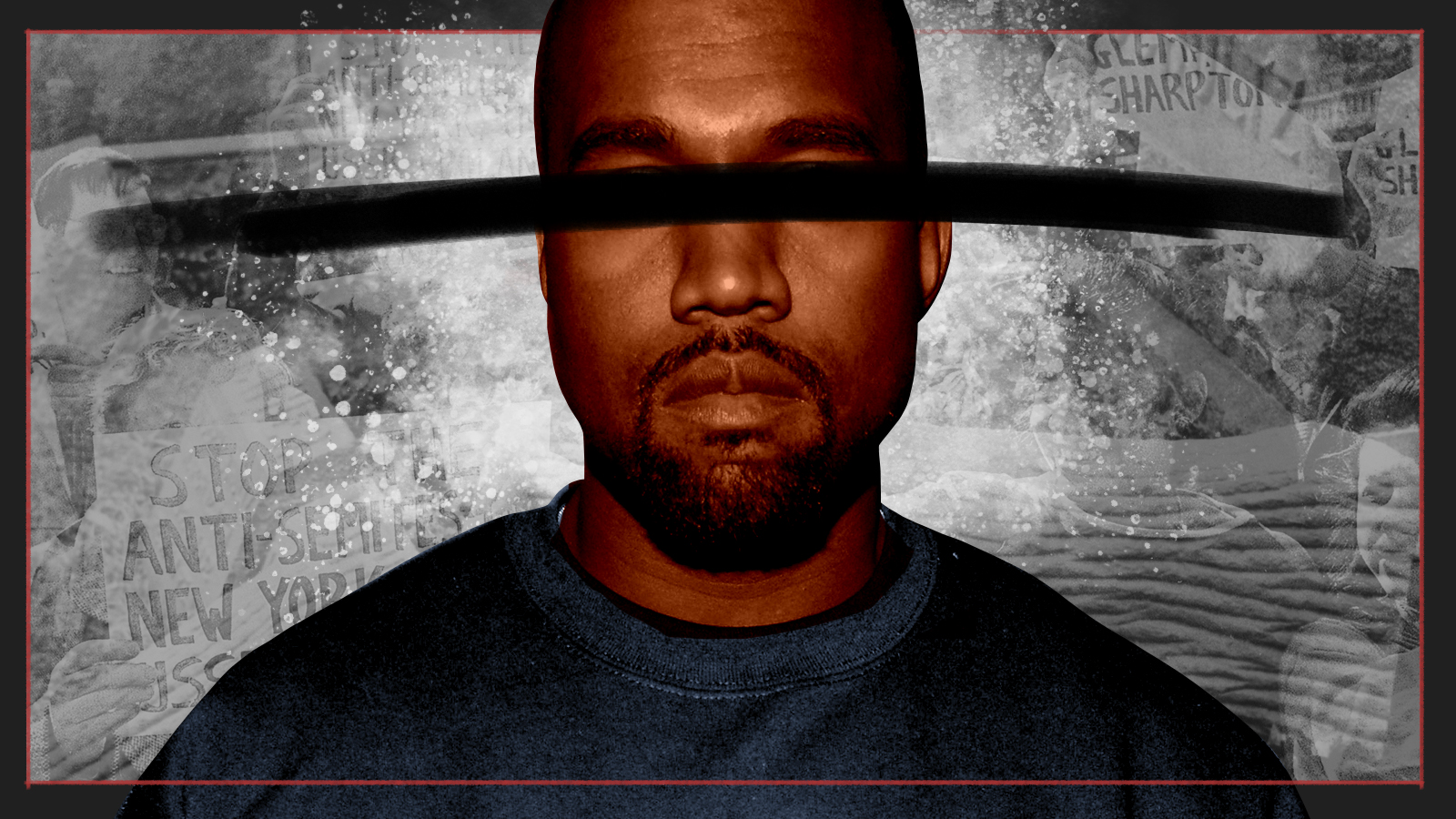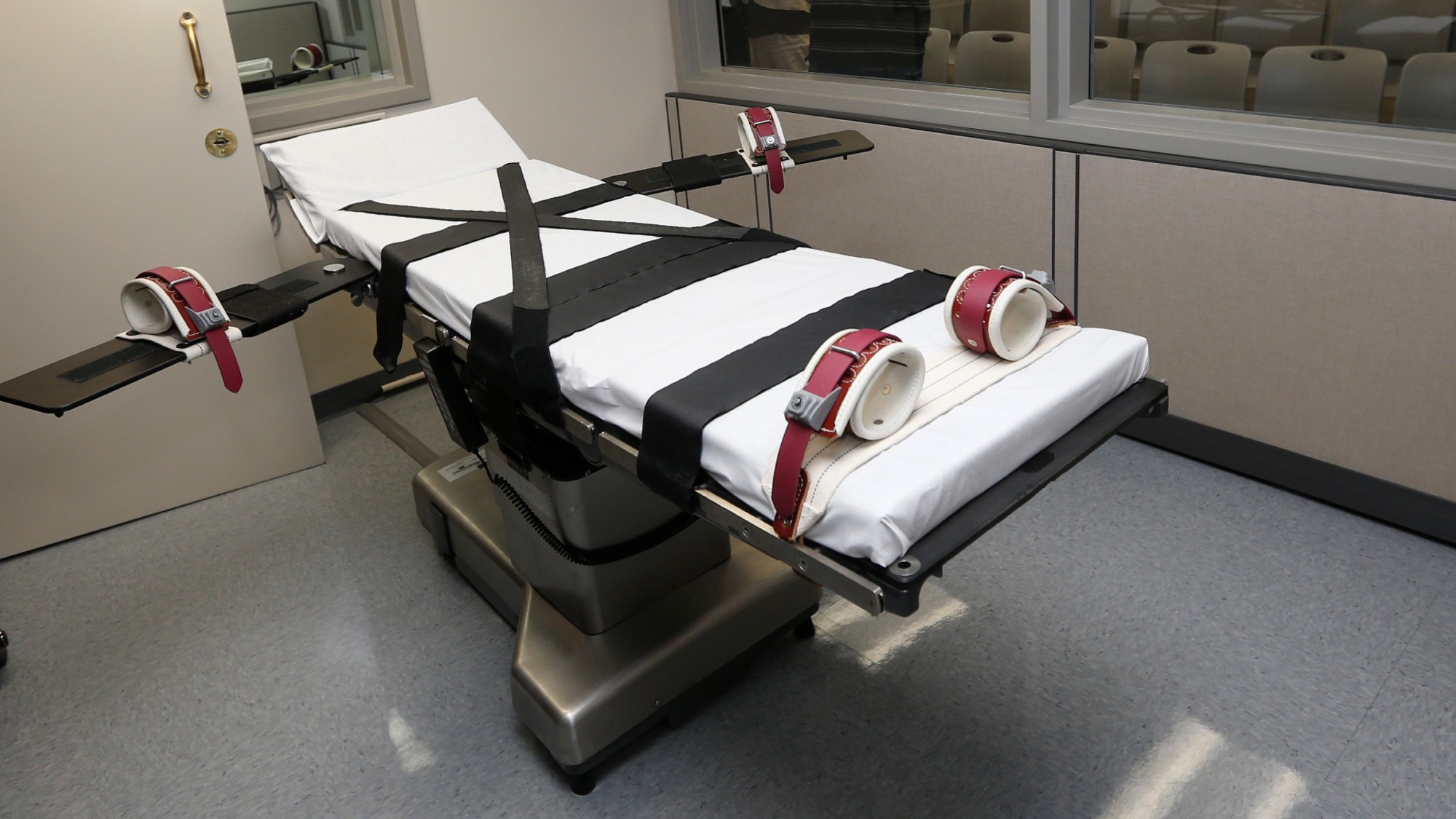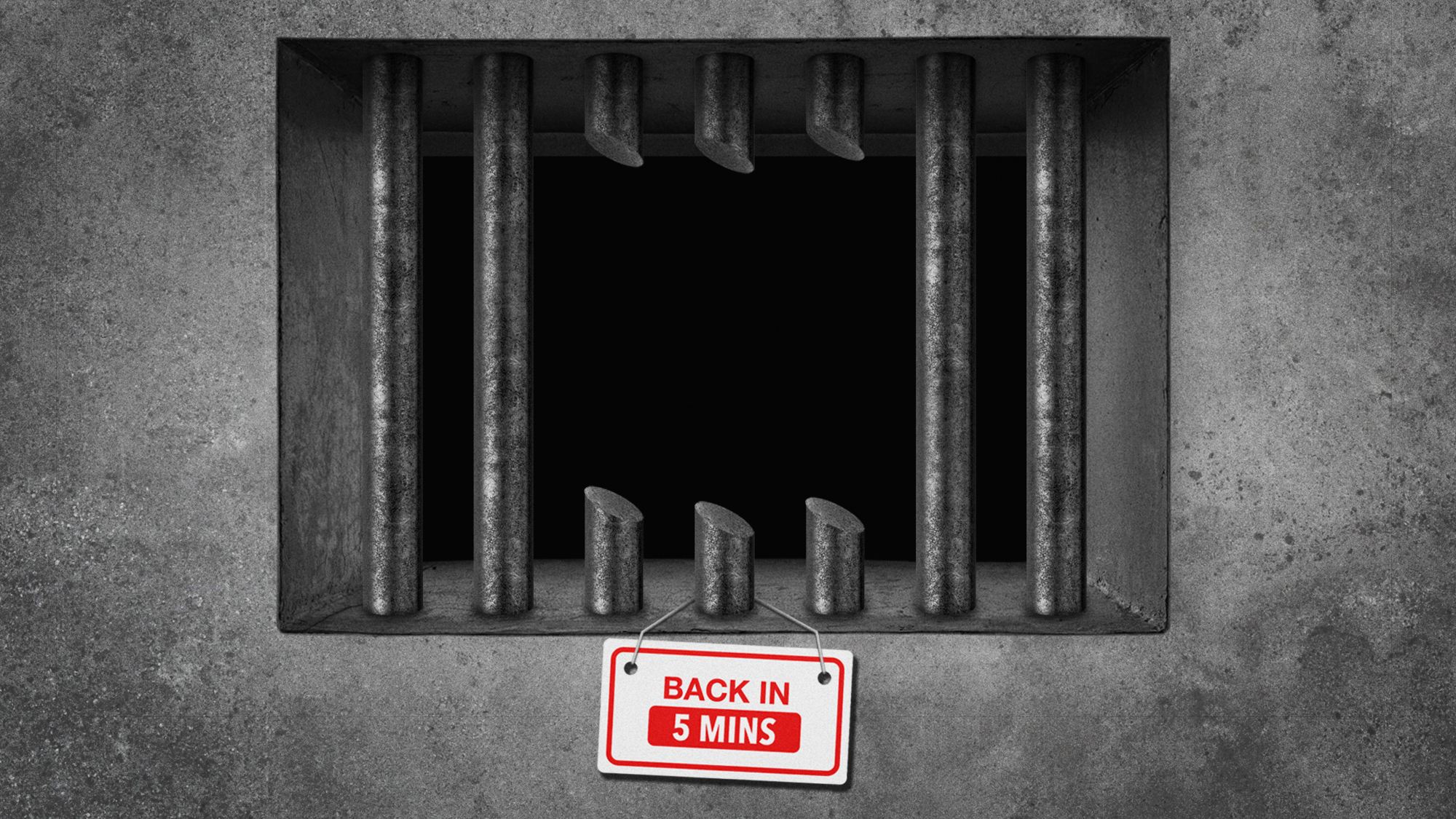The alarming rise of antisemitism in the United States
A disturbing tweet by the rapper Ye has put renewed focus on the increasing number of hate crimes targeting Jewish people


A free daily email with the biggest news stories of the day – and the best features from TheWeek.com
You are now subscribed
Your newsletter sign-up was successful
Antisemitism has seemingly been on a caustic rise in the United States over the past few years, with new incidences of apparent hatred toward Jewish people making constant headlines. This particularly came to a boiling point in recent weeks, when rapper Ye, formerly known as Kanye West, tweeted a statement calling for "Death Con 3 on JEWISH PEOPLE." While the backlash was swift, there appeared to be many who agreed with his sentiment, as evidenced by numerous antisemitic incidents seen in Los Angeles following Ye's remarks.
Ye's actions appear to be indicative of the growing problem of antisemitism across the country. Here's everything you need to know:
How widespread is antisemitism in the United States?
While it may be more visible in the modern era due to social media, antisemitism is not a new phenomenon in the U.S. However, an audit by the Anti-Defamation League published this past April found that incidences of antisemitism "reached an all-time high in the United States in 2021, with a total of 2,717 incidents of assault, harassment, and vandalism reported." According to the ADL, this was the highest number of incidents reported in over 40 years, averaging out to nearly seven per day. It also marked a 34 percent increase from 2020.
The Week
Escape your echo chamber. Get the facts behind the news, plus analysis from multiple perspectives.

Sign up for The Week's Free Newsletters
From our morning news briefing to a weekly Good News Newsletter, get the best of The Week delivered directly to your inbox.
From our morning news briefing to a weekly Good News Newsletter, get the best of The Week delivered directly to your inbox.
The ADL audit found rising levels of attacks towards Jewish people in almost every aspect and age range. This includes incidences directed at community centers, synagogues, college campuses, and grade schools, with an unprecedented 106 percent rise in antisemitic incidents in K-12 institutions.
The American Jewish Committee also conducted antisemitism surveys with 1,433 American Jews and 1,214 members of the general public. Even when factoring in the 3.9 percent margin of error, a comparison of the two surveys found a significant disconnect between the two groups — 90 percent of American Jews felt antisemitism was a problem in the U.S., compared to just 60 percent of the general public who felt the same way. The surveys also asked about the past five years, and while 82 percent of American Jews thought antisemitism has gotten worse, just 44 percent of the general public agreed.
Overall, the AJC found at least 1 in 4 American Jews had been targeted by antisemitism in 2021, even in cities with large Jewish populations such as Los Angeles and New York City.
The rise of antisemitism in the U.S. is part of a larger trend plaguing the world, with a 2021 report from Tel Aviv University shared by BBC News finding increasing anger toward Jews across the globe. In the U.S., the report noted that "the number of anti-Jewish hate crimes recorded in both New York and Los Angeles were almost twice that of the previous year," while also pointing towards rising levels of hate in France, Canada, the U.K., and others.
A free daily email with the biggest news stories of the day – and the best features from TheWeek.com
What is causing the rise in American antisemitism?
Jonathan Greenblatt, the CEO of the ADL, spoke about the root causes of antisemitism during an interview with PBS NewsHour. "I think what you're seeing is a kind of normalization of antisemitism and extremism," Greenblatt said. Part of this is likely due to the similar phenomenon seen following the origins of COVID-19: Just as there was a massive rise in hatred towards Asian Americans — largely due to anti-Asian conspiracy theories spread by people in power — a similar theory can be tied to rising antisemitism.
"By the same token, when you have people make wild claims about the Jewish state, make unhinged accusations, maybe it shouldn't surprise us that then people attack Jewish Americans here at home," Greenblatt said.
Such rhetoric has been noticeable on the fringes of the political spectrum, including among far-right and conspiracy groups such as QAnon. However, some of this antisemitism has reached the mainstream. With the midterm elections coming up, two recent Republican rallies — one of which featured former President Donald Trump — saw rallygoers raising their right hands in a gesture that The Washington Post described as "an uncanny resemblance" to a Nazi salute.
While this type of action is mostly associated with conservative groups, an opinion piece in USA Today described the rise in antisemitism that has also been seen among far-left liberal groups. The op-ed cited the AJC report, which also found that 71 percent of American Jews felt the far left was a threat, up from 61 percent the previous year.
What is being done to combat antisemitism, and are things getting better?
While the situation painted in these various reports is grim, there have been real efforts among some in the United States to try and crack down on antisemitism. This includes an entire congressional body, the House Bipartisan Task Force for Combating Antisemitism, which is dedicated to fighting hatred towards Jews.
Many in Congress were among the most vocal to criticize Ye following his antisemitic remarks, with the Congressional Black-Jewish Relations Caucus saying they "strongly condemn" his comments. "This kind of inflammatory rhetoric and perpetuation of stereotypes fuels violence amid a rise in antisemitism and racism throughout the country," the caucus added. Congressional leaders pledged to "stand together to make clear there is no room for this kind of hurtful and hateful rhetoric."
However, for all of its efforts, there appears to still be a significant way to go in the fight against antisemitism in America — including in political circles.
Even a congressional resolution to condemn antisemitism and Holocaust denial did not have unanimous consent, with Rep. Thomas Massie (R-Ky.) the lone dissent in the 420-1 vote. While the congressman tweeted that he voted against the bill because it promoted "internet censorship and violations of the First Amendment," Time magazine wrote Massie's vote "shows that belief and action don't always align."
During a recent White House summit featuring faith and community-based leaders, the group noted the rise in antisemitism — and hate-based speech in general — and called on people across the country to do more.
However, following a meeting earlier this month of the House Homeland Security Committee, the committee's chair, Rep. Ritchie Torres (D-N.Y.), told Yahoo! News that "antisemitism and extremism in America are at historic highs."
"We are fighting the war against antisemitism from multiple directions (the right and the left) and on multiple fronts (on college campuses, on social media, and on the streets)," Torres said.
"So far, we are losing," he added.
Justin Klawans has worked as a staff writer at The Week since 2022. He began his career covering local news before joining Newsweek as a breaking news reporter, where he wrote about politics, national and global affairs, business, crime, sports, film, television and other news. Justin has also freelanced for outlets including Collider and United Press International.
-
 The environmental cost of GLP-1s
The environmental cost of GLP-1sThe explainer Producing the drugs is a dirty process
-
 Greenland’s capital becomes ground zero for the country’s diplomatic straits
Greenland’s capital becomes ground zero for the country’s diplomatic straitsIN THE SPOTLIGHT A flurry of new consular activity in Nuuk shows how important Greenland has become to Europeans’ anxiety about American imperialism
-
 ‘This is something that happens all too often’
‘This is something that happens all too often’Instant Opinion Opinion, comment and editorials of the day
-
 Executions are on the rise in the US after years of decline
Executions are on the rise in the US after years of declineThe Explainer This year has brought the highest number of executions in a decade
-
 Narco subs are helping to fuel a global cocaine surge
Narco subs are helping to fuel a global cocaine surgeThe Explainer Drug smugglers are increasingly relying on underwater travel to hide from law enforcement
-
 A Mexican cartel is trapping unsuspecting tourists in a timeshare scam
A Mexican cartel is trapping unsuspecting tourists in a timeshare scamUnder the Radar Thousands of people have reportedly fallen victim to the scams over the last few years
-
 The most famous prison breaks of all time
The most famous prison breaks of all timeThe Explainer Many people have escaped from behind bars over the decades
-
 Would rescheduling cannabis be good news for the industry?
Would rescheduling cannabis be good news for the industry?Speed Read Following President Joe Biden's request, the HHS recommended that cannabis be moved to a less lethal category, and some experts are weary of the move
-
 Why the French are taking to the streets
Why the French are taking to the streetsThe Explainer France is protesting after the police-involved death of a teenager
-
 Do drugmakers have a constitutional right to set their own prices?
Do drugmakers have a constitutional right to set their own prices?Talking Point Merck thinks so and is suing the U.S. government over it
-
 Why are mass shootings rare in other countries despite high levels of gun ownership?
Why are mass shootings rare in other countries despite high levels of gun ownership?In Depth Firearm laws are very different in Finland, Switzerland, and Australia
